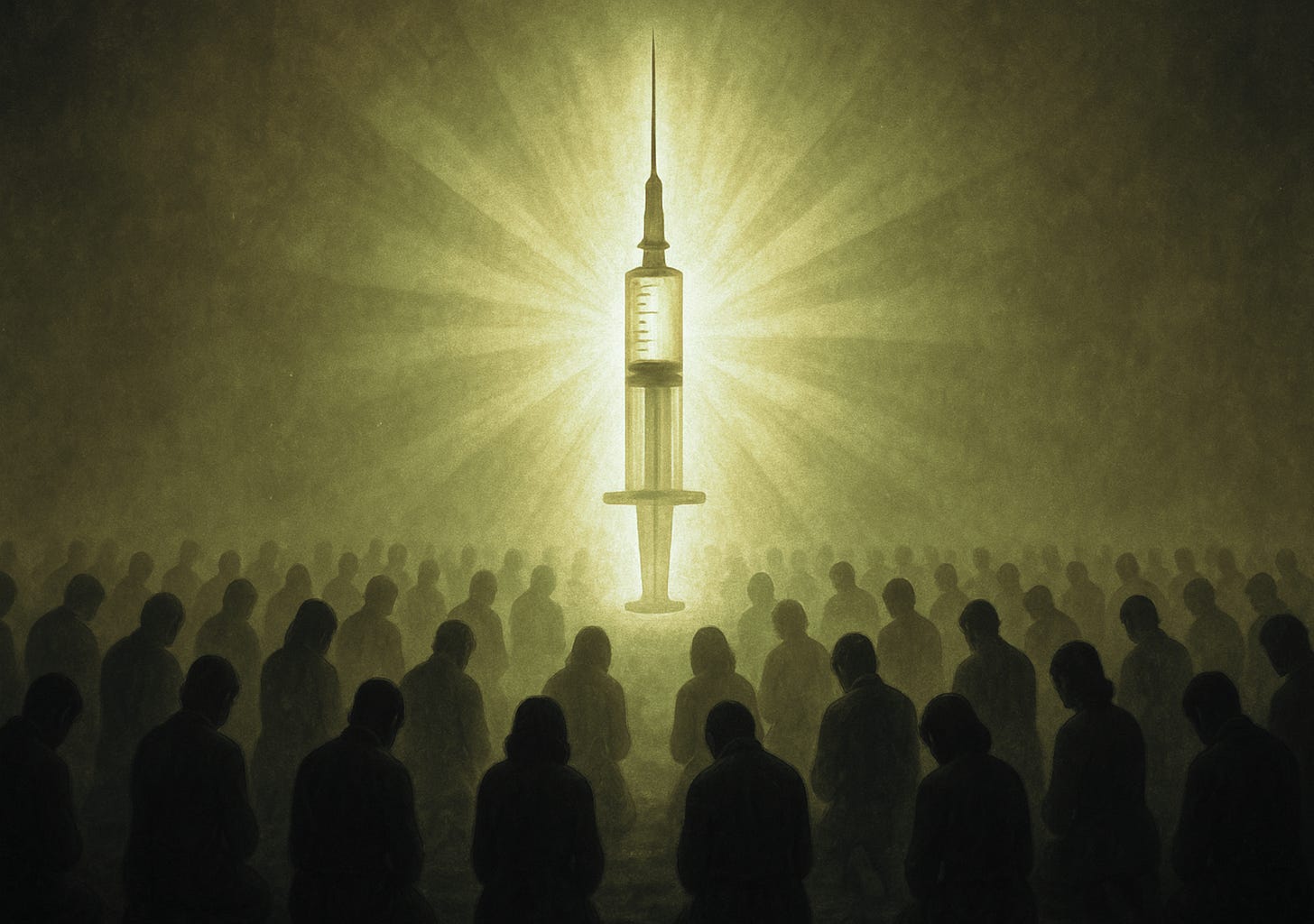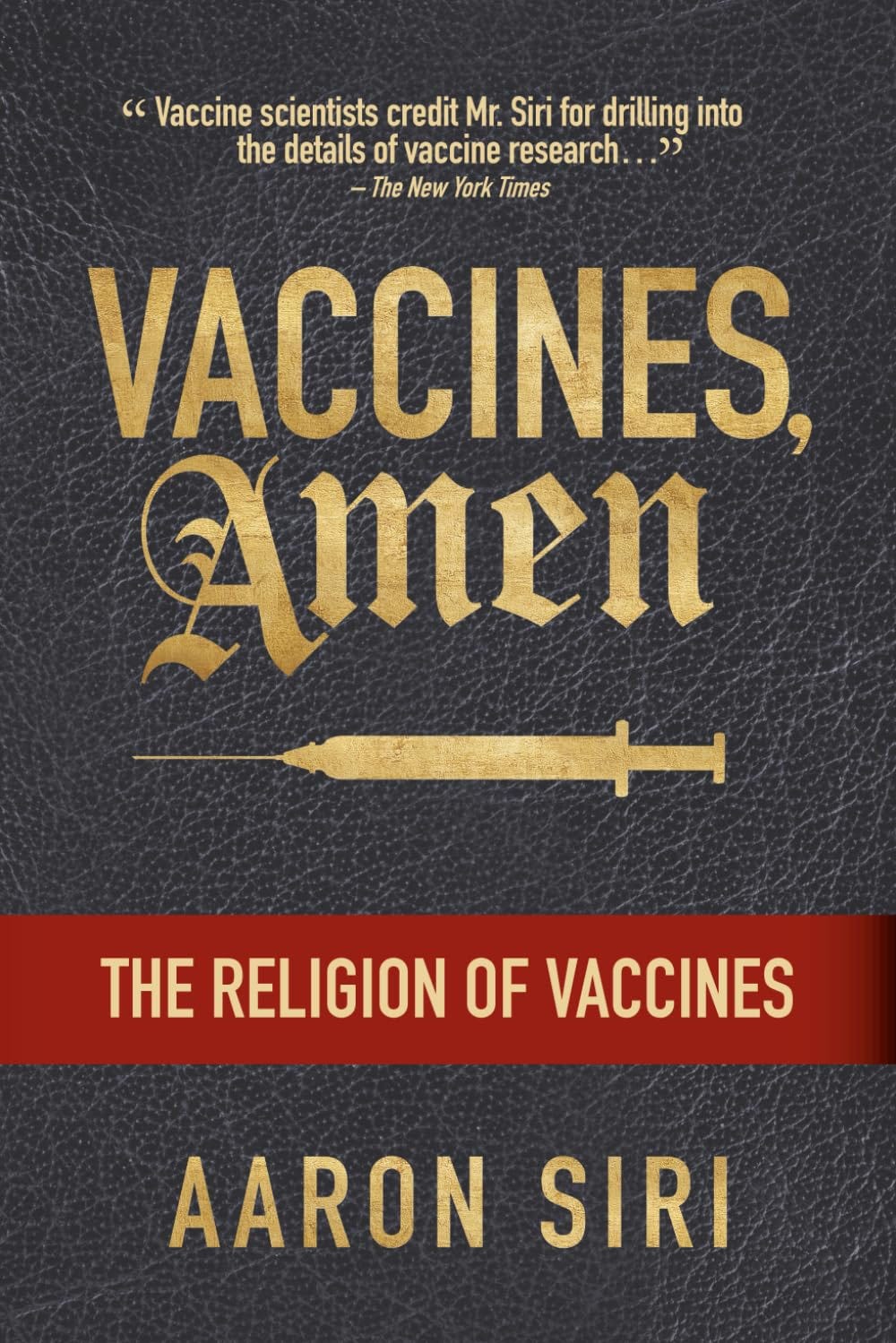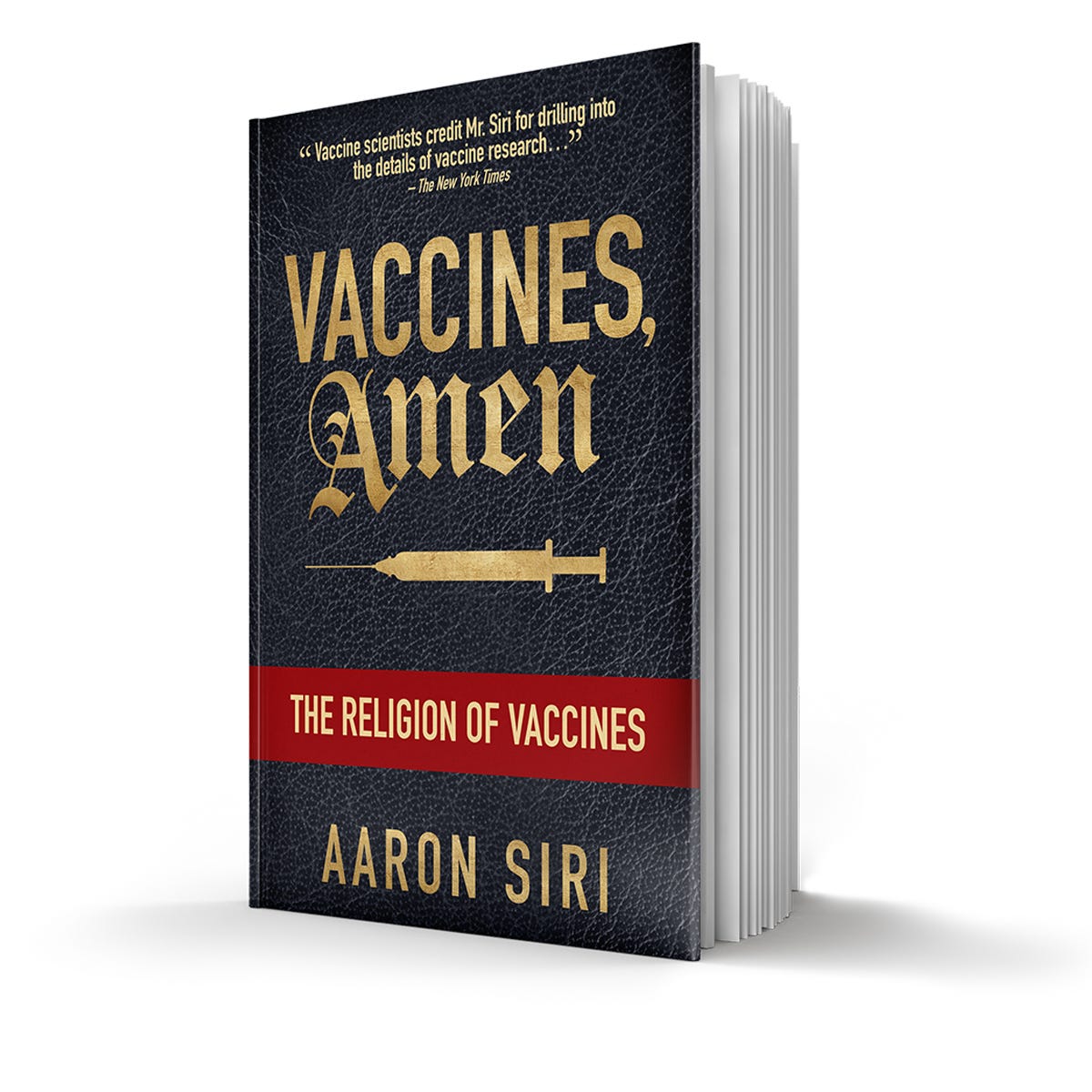Dear readers,
I’m thrilled to bring you the third installment of Ask a Pro. Today’s guest is a powerful one, renowned medical freedom attorney Aaron Siri.
As a special thank you to my paid subscribers, this interview includes a bonus question at the end.
Now, let’s dive in and meet our guest.
Aaron Siri is no stranger to high-stakes battles. As a veteran of complex civil litigation, he’s taken on civil rights cases involving mandated medicine, class actions, and government cover-ups.
One of his most notable wins was forcing the release of the Pfizer documents that the FDA wanted hidden for 75 years.
Now Siri, alongside Del Bigtree and the team at ICAN (Informed Consent Action Network), is gearing up to release a new film centered on an Inconvenient Study — one that revealed devastating vax vs. unvax results when it comes to long-term health outcomes and chronic disease.
On top of that, Siri is releasing a new book, Vaccines, Amen, where he explores how vaccines have morphed into a product based on faith, becoming almost like a religion for large segments of America.
Siri’s work is highly respected in the medical freedom community. He also regularly shares his insights and updates on Substack. Without further ado, let’s get into the interview.
QUESTION #1 - In your new book, Vaccines, Amen, you compare vaccines to a religion. Can you briefly explain why you see it that way?
SIRI: Most of the claims made about vaccines by the medical community and media are based on beliefs and dogma, not evidence. I can say that with confidence after a decade of deposing the world’s leading vaccinologists and prosecuting well over a hundred lawsuits against health agencies.
On that journey, I found that common claims about vaccines are often contrary to the evidence, and my book lays bare this evidence. There is what medical and health authorities tell the world, often beliefs and dogma, and then there is what they admit under oath in a lawsuit when faced with the hard, cold data and evidence.
QUESTION #2 - The hepatitis B vaccine has been on the childhood schedule since 1991, given to infants on the very first day of life. Hepatitis B is primarily spread through sexual contact or intravenous drug use—not situations newborns face.
While it can be transmitted from mother to baby, mothers are routinely tested before delivery. That leaves no logical reason to inject a newborn with this shot. So the obvious question is: how did it end up on the childhood schedule in the first place?
SIRI: Pharma pushed a universal recommendation to sell more of this product and increase its profits. Newborns were an easy target. CDC went along because they are a captured agency, as is made crystal clear, with hard evidence, in Chapter 5 of my book.
QUESTION #3 - President Trump declared on Monday that there should be “no aluminum” and “no mercury” in vaccines moving forward. Were you surprised by those remarks? Did you ever think a U.S. president would take that stance publicly?
SIRI: In 2017, Informed Consent Action Network (ICAN) published a white paper on how aluminum adjuvants in vaccines can cause autism.
See https://icandecide.org/article/how-aluminum-adjuvants-in-vaccines-can-cause-autism/
The truth often takes years to reach the surface, but it has finally reached a critical mass such that even the U.S. president feels comfortable telling the public what the data already shows.
QUESTION #4 - Trump also advocated for spacing out vaccine doses and that the hepatitis B shot should be delayed until age 12. What’s your reaction to those proposals?
SIRI: We live in a free country, and every parent and adult should be free, without any coercion of any kind, to decide what injections they want or do not want to receive and when they want to receive them.
QUESTION #5 - You often hear that vaccines are the greatest “gift” of modern medicine — that they’re the reason we no longer see the waves of infectious disease that plagued people in the 19th century. What say you?
SIRI: Read Chapter 7 of Vaccines, Amen, and you will see that this claim is simply not true. Vaccines had, at best, an immaterial impact on mortality in the United States, and the evidence reflects they may have even had a negative impact on mortality.
QUESTION #6 - What stood out to you most from Monday’s autism announcement, and how do you think this will shape the vaccine conversation and policy going forward?
SIRI: The fact that a sitting president is willing to point to and call out any consumer product sold by a powerful and well-heeled company is a milestone.
Before we get to the bonus question, many thanks to Aaron Siri for taking the time to share his insights.
His new book, Vaccines, Amen, is now available on Amazon.
BONUS QUESTION - You have two minutes — no more, no less — to speak to someone who “believes” vaccines are safe and effective without an ounce of skepticism. What do you say to get them to finally start asking questions?
Paid subscribers get exclusive access to Siri’s full answer below—and every single bonus question moving forward.








